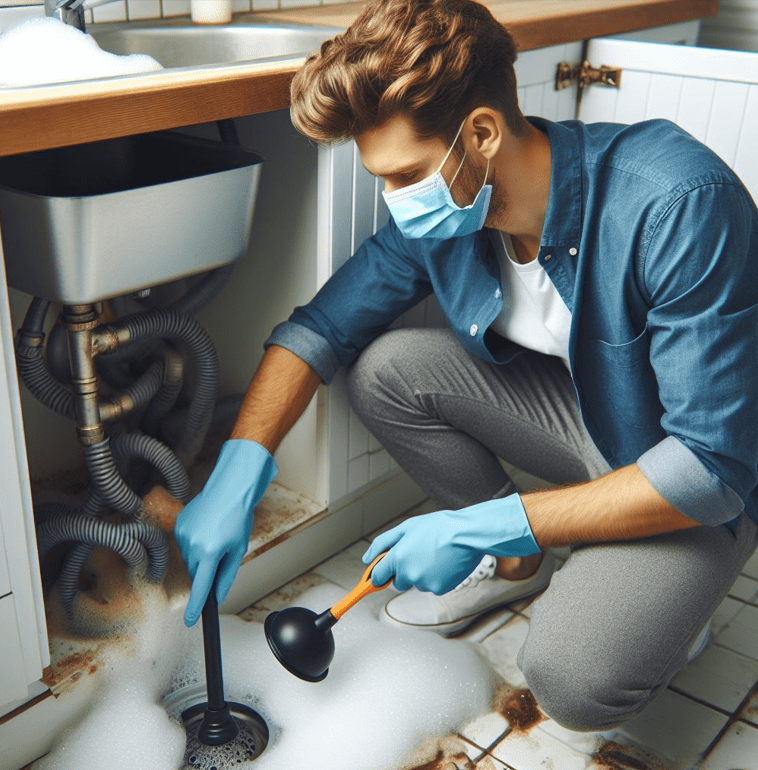Stinky Drains? Ditch the Chemicals!
Conquer foul odors with natural solutions and prevent future plumbing woes! ✨
This guide reveals:
- The sneaky culprits behind stinky drains. ️
- Simple DIY cleaning methods using vinegar & baking soda! 🪄
- Pro tips for tough clogs & persistent smells.
- When to call in the plumbing pros. ♀️
Stop the stench and breathe easy again!
Read this article for:
- Fresh-smelling drains without harsh chemicals.
- Peace of mind knowing you’re tackling the problem right.
- Saving money on unnecessary plumbing repairs.
Causes of Stinky Drains
Before we dive into the cleaning process, let’s take a closer look at what causes stinky drains in the first place.
Here are some of the most common culprits:
Dry P-trap
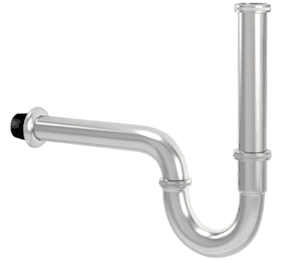
The P-trap is a U-shaped pipe beneath your sink or shower drain. Its purpose is to trap water, which creates a seal that prevents sewer gases from entering your home. However, if the P-trap dries out, it can no longer perform this function, leading to unpleasant odors.
Blocked Air Vent
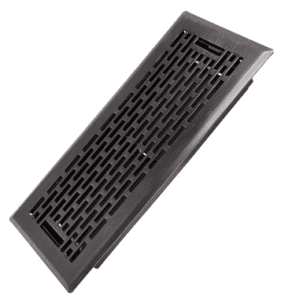
Your plumbing system also includes air vents, allowing air to flow through the pipes. If these vents become blocked, it can cause water to drain slowly and create unpleasant smells.
Clogged Pipes or Garbage Disposal
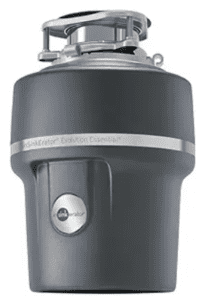
Obstructions in your pipes or garbage disposal can trap food particles and other debris, producing foul odors over time.
Bacteria Buildup
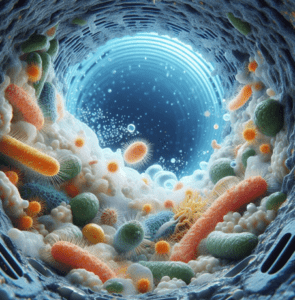
Bacteria can grow in your drains and produce hydrogen sulfide gas with a distinct rotten egg smell.
Mold Growth
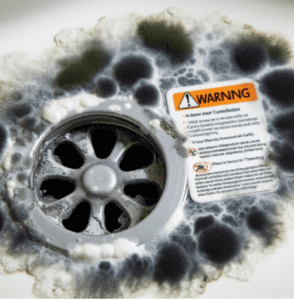
Mold can also grow in your drains, mainly if unused frequently. This can lead to musty odors that can be difficult to eliminate.
Clogged Aerator
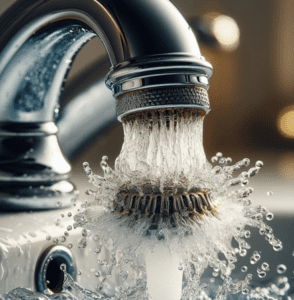
The aerator is a small device located at the end of your faucet. It’s designed to catch and prevent debris from flowing into your pipes. However, if the aerator becomes clogged, it can cause water to drain slowly and create unpleasant smells.
Step-by-Step Cleaning Guide
Now that you know what causes stinky drains, let’s discuss how to clean them. Here’s a step-by-step guide:
Vinegar and Baking Soda Flush
One of the most effective ways to clean smelly drains is to use vinegar and baking soda. Here’s how to do it:
- Pour a pot of boiling water down the drain to loosen any debris.
- Pour 1/2 cup of baking soda down the drain.
- Pour 1 cup of vinegar down the drain.
- Cover the drain with a plug or rag to prevent the mixture from bubbling.
- Wait 10-15 minutes.
- Pour another pot of boiling water down the drain to remove the mixture.
Cleaning Aerators and Showerheads
Aerators and showerheads can also become clogged with debris, which can cause water to drain slowly and create unpleasant smells.
Here’s how to clean them:
- Remove the aerator or showerhead from the faucet.
- Soak it in vinegar for several hours.
- Rinse it thoroughly with water.
- Reattach the aerator or showerhead to the faucet.
Garbage Disposal Cleaning
Garbage disposals can also become clogged with food particles and other debris, producing foul odors.
Here’s how to clean your garbage disposal:
- Turn off the power to the disposal.
- Use a flashlight to look inside the disposal for any visible debris.
- Use tongs or pliers to remove any debris that you can see.
- Pour 1/2 cup of baking soda down the disposal.
- Pour 1 cup of vinegar down the disposal.
- Wait 10-15 minutes.
- Turn on the cold water and run the disposal for 30 seconds.
P-trap Maintenance
Finally, it’s essential to clean your P-trap regularly to prevent odors. Here’s how to do it:
- Place a bucket beneath the P-trap to catch any water.
- Loosen the slip nuts on either side of the P-trap and remove it.
- Clean the P-trap thoroughly with a bottle brush or other cleaning tool.
- Reattach the P-trap and tighten the slip nuts.
Preventive Measures
In addition to cleaning your drains, you can take several preventive measures to prevent odors from developing in the first place. Here are some tips:
Regular Flushing
Flushing your drains with hot water once a week can help prevent debris from building up and causing odors.
Baking Soda Treatment
You can also pour 1/2 cup of baking soda down your drains weekly to absorb odors.
Garbage Disposal Usage
Using your garbage disposal regularly can help prevent food particles from accumulating in your pipes and causing unpleasant odors. Be sure to run the disposal for a few seconds after each use to ensure that any debris is flushed away.
Shower Drain Maintenance
Shower drains can also become clogged with hair and other debris, which can cause water to drain slowly and create unpleasant smells. Here are some tips for maintaining your shower drain:
- Use a hair catcher to trap hair and other debris before it enters the drain.
- Once a month, pour 1/2 cup of baking soda down the drain, followed by 1 cup of vinegar. Wait 10-15 minutes, then flush the drain with hot water.
Beyond Baking Soda: Alternative Drain-Cleaning Solutions
While the natural power of vinegar and baking soda is a fantastic first line of defense against drain clogs and odors, there are times when a little extra muscle might be needed. Here’s a quick rundown of some alternative solutions, each with its strengths and considerations:
1. The Mighty Drain Snake:
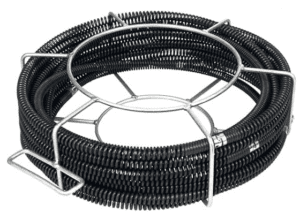
This trusty plumbing tool, often resembling a long, flexible cable with a corkscrew-like tip, can reach deep into the pipes, snagging and dislodging hair, food scraps, and other debris that vinegar can’t touch. It’s an excellent option for bathtub and shower drains prone to hair clogs. Just remember to use caution and avoid over-cranking to prevent pipe damage.
2. Commercial Drain Cleaners:
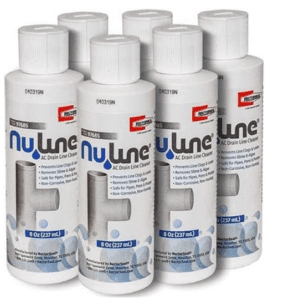
These potent chemical concoctions can tackle tough clogs caused by grease, soap scum, and mineral buildup. However, proceed with caution! Harsh chemicals can damage pipes, irritate skin, and release harmful fumes. Always follow the instructions carefully, ensure proper ventilation, and never mix drain cleaners with other chemicals.
3. Enzymatic Drain Cleaners:
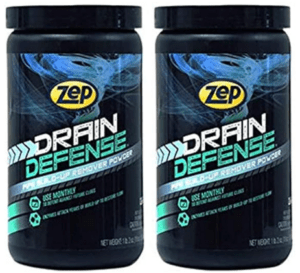
A gentler alternative to chemical drain cleaners, these eco-friendly formulas use live bacteria to digest organic matter, gradually breaking down clogs over time. They’re ideal for sinks and garbage disposals and pose minimal risk to pipes and skin. However, they might require repeated applications for stubborn clogs.
4. Boiling Water:
A good old-fashioned pot of boiling water can work wonders for simple grease clogs. The heat melts and loosens the grease, allowing it to flow through the pipes. Be careful not to pour boiling water directly down a PVC pipe, as it could crack.
Remember, prevention is key! Regular maintenance, like using drain screens and avoiding pouring grease down the drain, can go a long way in keeping your pipes clog-free and smelling fresh. But when the natural solutions reach their limits, these alternative methods can be valuable allies in the battle against drain dragons. Just choose wisely and always prioritize safety!
When to Call a Professional
When the DIY Drain De-funk Fails: While vinegar and baking soda are powerful odor-fighting allies, some drain issues demand a professional’s expertise.
Here are some red flags that signify it’s time to call in the pros:
1. Persistent Odors: If the foul smell lingers despite your best efforts, it could indicate a deeper clog or hidden leak. Don’t let the stench become a permanent houseguest – seek professional help to diagnose and eradicate the source.
2. Plumbing Backups: Clogged drains often lead to backups, causing toilets to gurgle, sinks to overflow, and showers to become mini-pools. These backups disrupt your home’s hygiene and signify a potentially serious problem requiring professional intervention.
3. Slow Drains: A sluggish drain might seem minor, but it can be a symptom of deeper issues like collapsed pipes, root intrusion, or failing septic systems. Don’t ignore the sluggish flow – a professional can pinpoint the cause and prevent potential water damage.
4. Unfamiliar Sounds: Gurgling, glug-glug noises, or loud banging when drains empty are often signs of air trapped in the system or a damaged vent pipe. While DIY solutions might work for simple clogs, these unusual sounds warrant a professional’s ear to diagnose and fix the underlying cause.
5. Visible Damage: Cracks, leaks, or corrosion around pipes are more than just eyesores – they indicate compromised plumbing integrity. Don’t risk further damage or potential health hazards – call a plumber to assess the situation and ensure safe repairs.
6. DIY Drain Cleaner Fiasco: If using chemical drain cleaners backfired, causing worse clogs or chemical burns, don’t panic! Stop using any further chemicals and immediately seek professional help. They can safely remove the clog and neutralize any harmful residues.
7. Lack of Confidence: If you’re unsure about the cause of the odor, the severity of the clog, or your ability to tackle the issue safely, don’t hesitate to call a professional. Plumbers are trained and equipped to handle drain dilemmas, saving you time, frustration, and potential property damage.
Remember, while DIY solutions can often solve simple drain issues, prioritizing safety and professional expertise when faced with persistent odors, backups, or unfamiliar plumbing sounds is always the wiser choice. Don’t let a stinky drain become a major headache – call in the pros and restore peace and fresh air to your home.
Final Thoughts
While harsh drain cleaners can offer a quick fix, they often come with harsh chemicals and environmental concerns. Opting for natural solutions like baking soda and vinegar, or even the acidity of lemon juice, can be just as effective in tackling most stinky drain issues.
Remember, prevention is key! Regularly running hot tap water helps prevent grease build-up, and using a drain plug to catch hair and debris saves you from future clogs. If the foul smell persists, investigate possible reasons like clogged dishwasher filters or damaged pipes. And for those stubborn clogs, a simple drain snake can be your best friend.
Ultimately, conquering a smelly drain problem doesn’t require fancy chemicals or expensive tools. A little understanding, some elbow grease, and natural ingredients like vinegar often do the trick, leaving you with fresh-smelling drains and a sense of accomplishment. So, the next time your sink or bathroom drain throws a tantrum, remember the solution might just be sitting in your pantry!
Stinky drains can be a frustrating problem, but they don’t have to be permanent. By following the tips outlined in this article, you can keep your drains smelling fresh and clean. Remember to clean your drains regularly, use natural cleaning solutions like vinegar and baking soda, and take preventive measures to avoid odors. You can enjoy fresh-smelling drains and a more pleasant home environment with a little effort.
To clean your sink drain, pour half a cup of baking soda and one cup of white vinegar. Cover the drain with a cover or rag to prevent the mixture from bubbling. Wait 10-15 minutes, then flush the drain with hot running water. This vinegar mixture can also clean bathroom sinks, floor drains, kitchen sink drains, and PVC pipes.
Use a plunger or a drain snake to clear the blockage for stubborn clogs. You can also try using a mixture of hydrogen peroxide and baking soda to clear clogs and eliminate stinky drain smells.
To prevent future problems, be sure to take care of your drains by flushing them regularly with hot water and using a hair catcher to trap hair and other debris. Inspecting your pipes periodically to check for signs of pipe damage or sewer gases would be best.
By following these tips, you can keep your drains clear and free of unpleasant odors. With a little effort, you can enjoy a more pleasant home environment and avoid the cause of the smell.



















